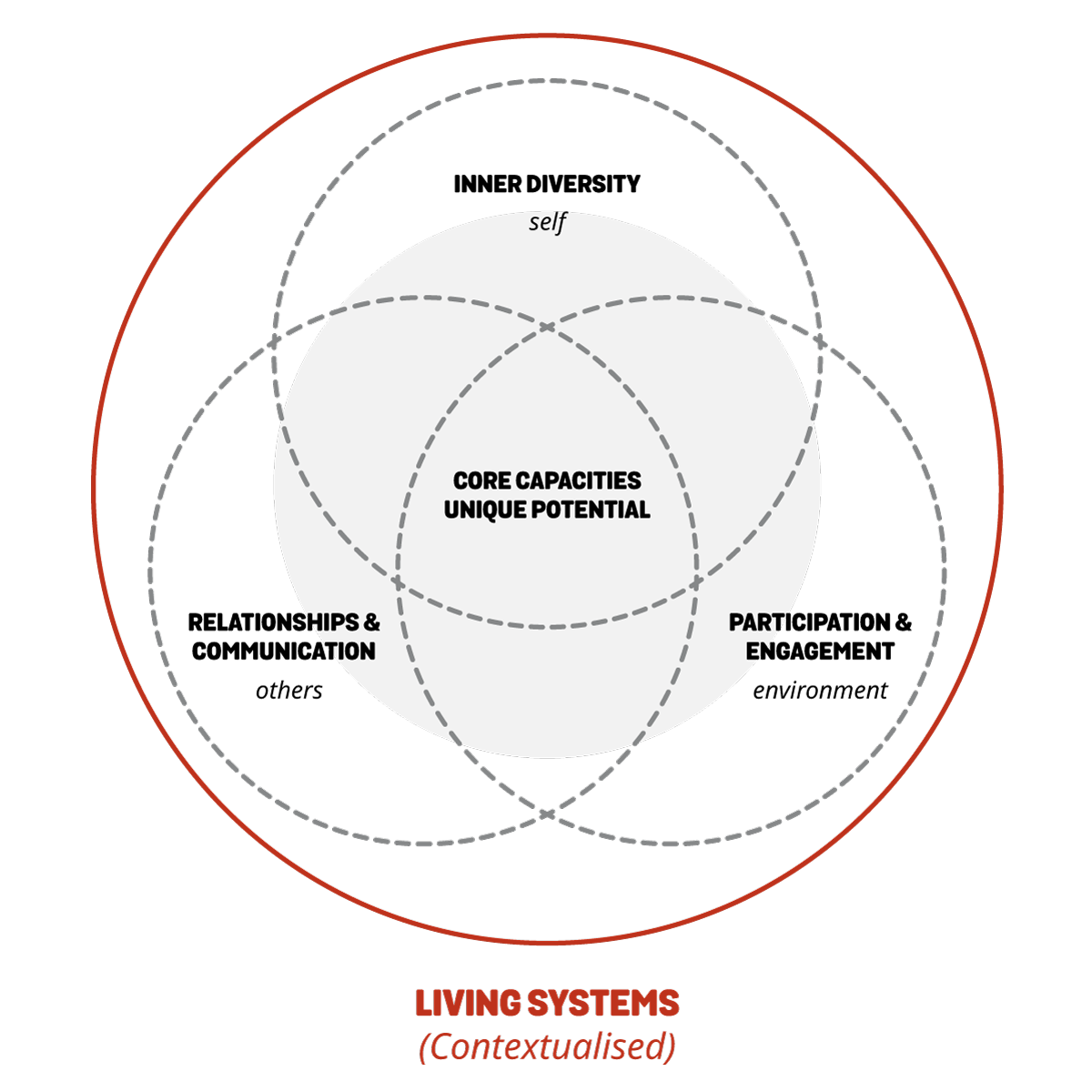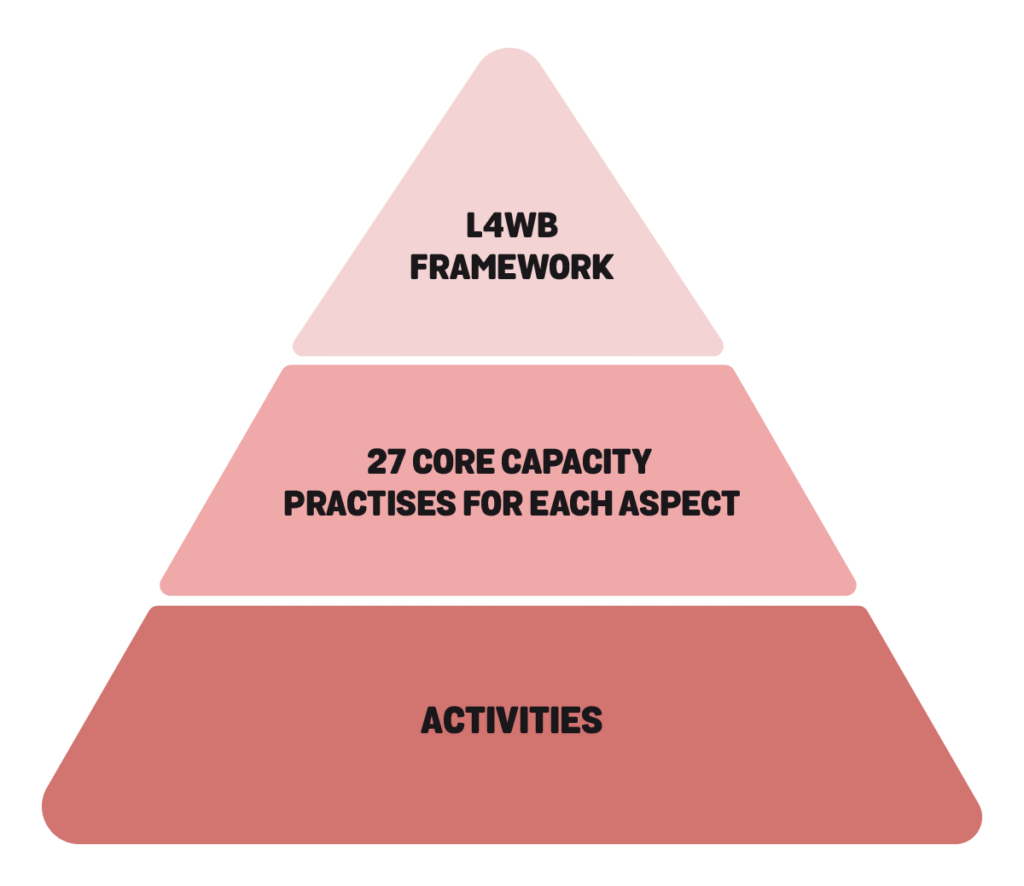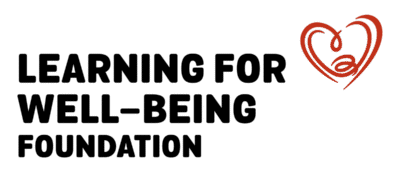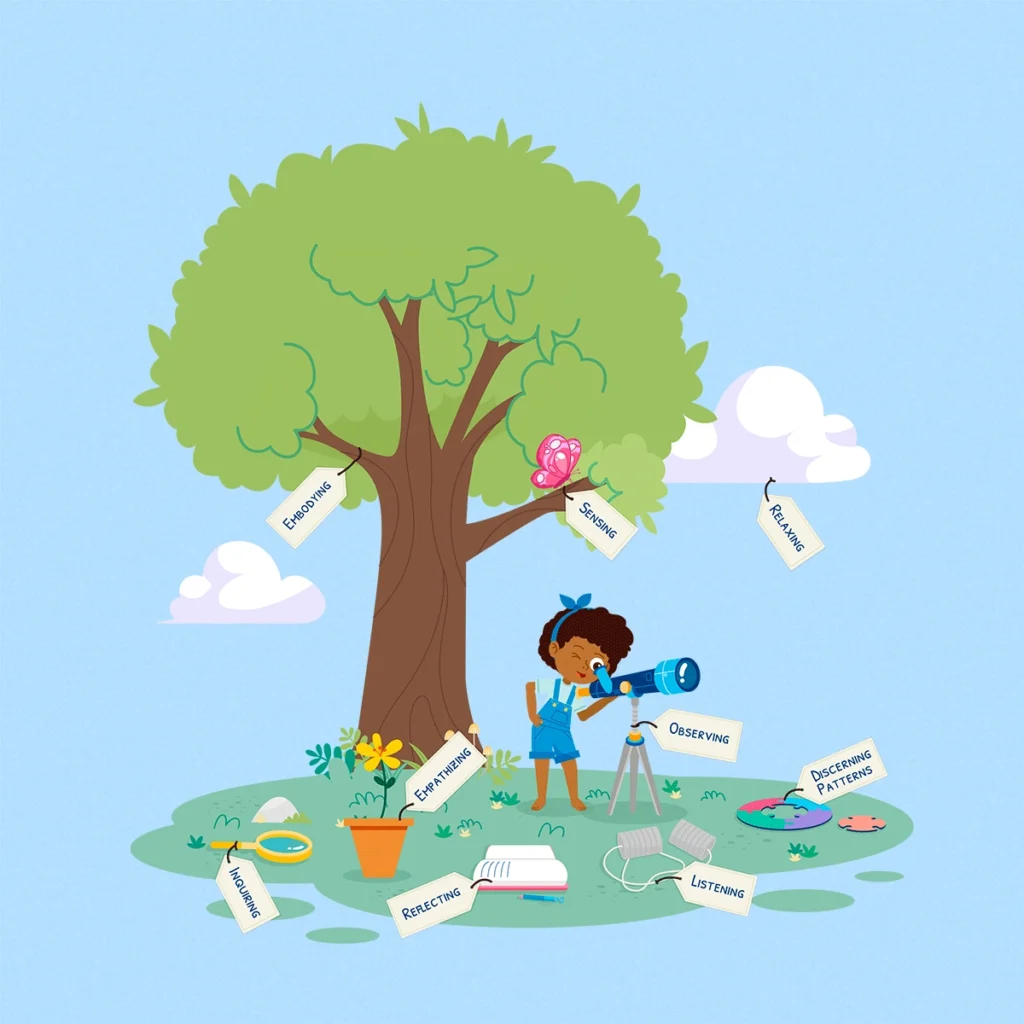Programme Framework
Our programmes are designed to support the holistic well-being of children and the adults who share relationships with them. Guided by a human-centred and ecological understanding of development, our programmes apply the Learning for Well-being framework to real-world settings through structured, participatory and context-responsive experiences.
We recognise that every child has unique potential to fulfil, and that development unfolds across the mental, emotional, physical, and spiritual dimensions of well-being. Programmes are designed to bring these dimensions into awareness and practice, both for children and for the adults and systems that surround them.
Holistic child well-being is supported through a eudaimonic process of development—one that fosters purpose, alignment and connection in daily life. Our programmes aim to contribute to this process by offering tools, relationships and experiences that strengthen individual and collective capacity.
PROGRAMME AREAS
Our current programme portfolio is structured around three areas, working with the following settings and target audiences:
- Inner Diversity for schools, teachers and students
- Relationships and Communication for families, parents, caregivers and children
- Participation and Engagement for organisations and communities, professionals and children
Each programme area reflects a key domain of development that contributes to strengthening human connections and building systems that nurture well-being.

Practice Through Core Capacities
Core capacities are our innate abilities that help us become more aware of how we think, feel, and act. Our 3 programmes bring the 9 core capacities to life through structured activities. These capacities serve as a bridge between conceptual understanding and lived experience, enabling participants to connect with themselves and others and the environment more intentionally.
Practised across the three aspects (mental, emotional, and physical), core capacities are introduced through structured activities that reflect individual preferences and contextual needs. Over time, they support deeper connections within self, others and the environment, more conscious choices, and stronger alignment with personal and shared purpose.
From Framework to Experience
All programmes follow a shared design structure: an introduction to the L4WB framework, followed by the 3 aspects x 9 Core Capacities practices—adapted to the specific context, audience, and programme goals. These practices are integrated into interactive formats that encourage co-creation, reflection and practical application.
Our aim is to create environments that allow participants to experience and embody the principles of the framework. By supporting both self-awareness and systemic insight, our programmes help lay the foundation for children to thrive in the environments that shape their development.


